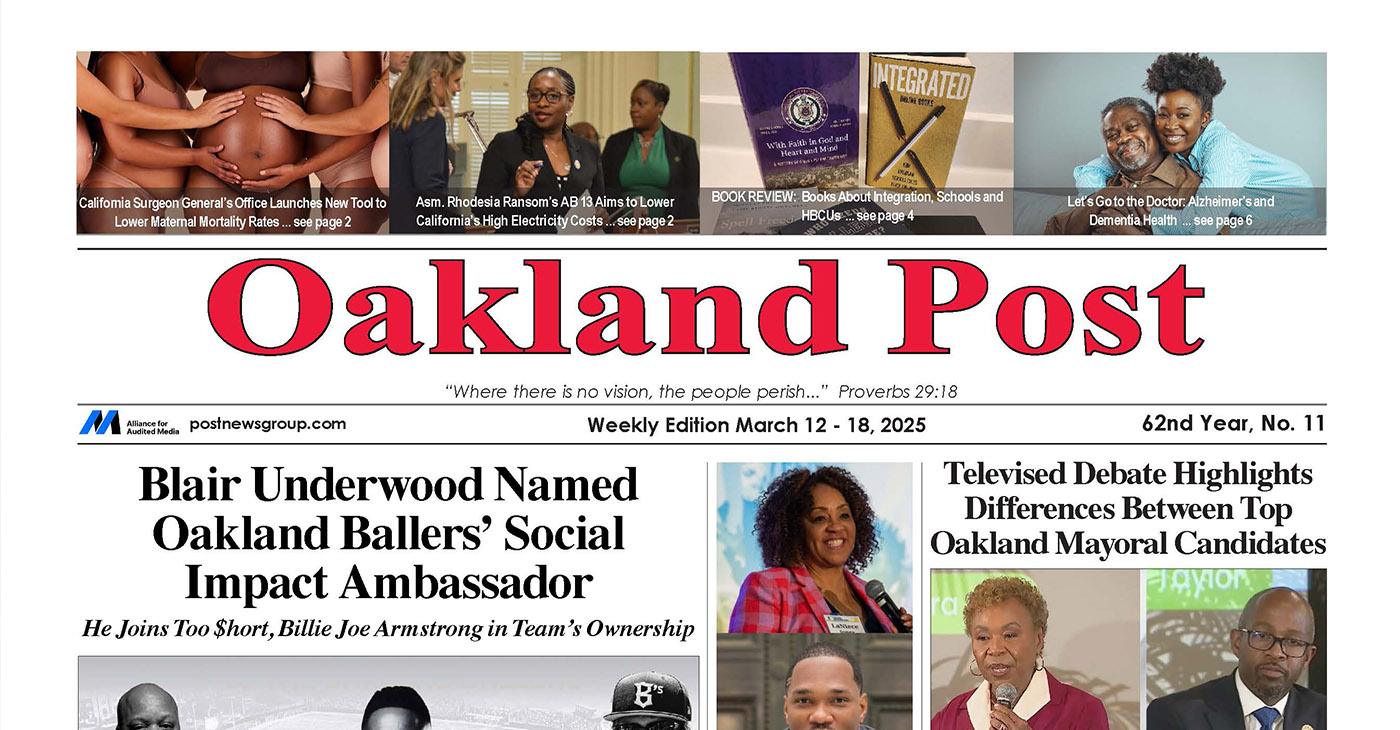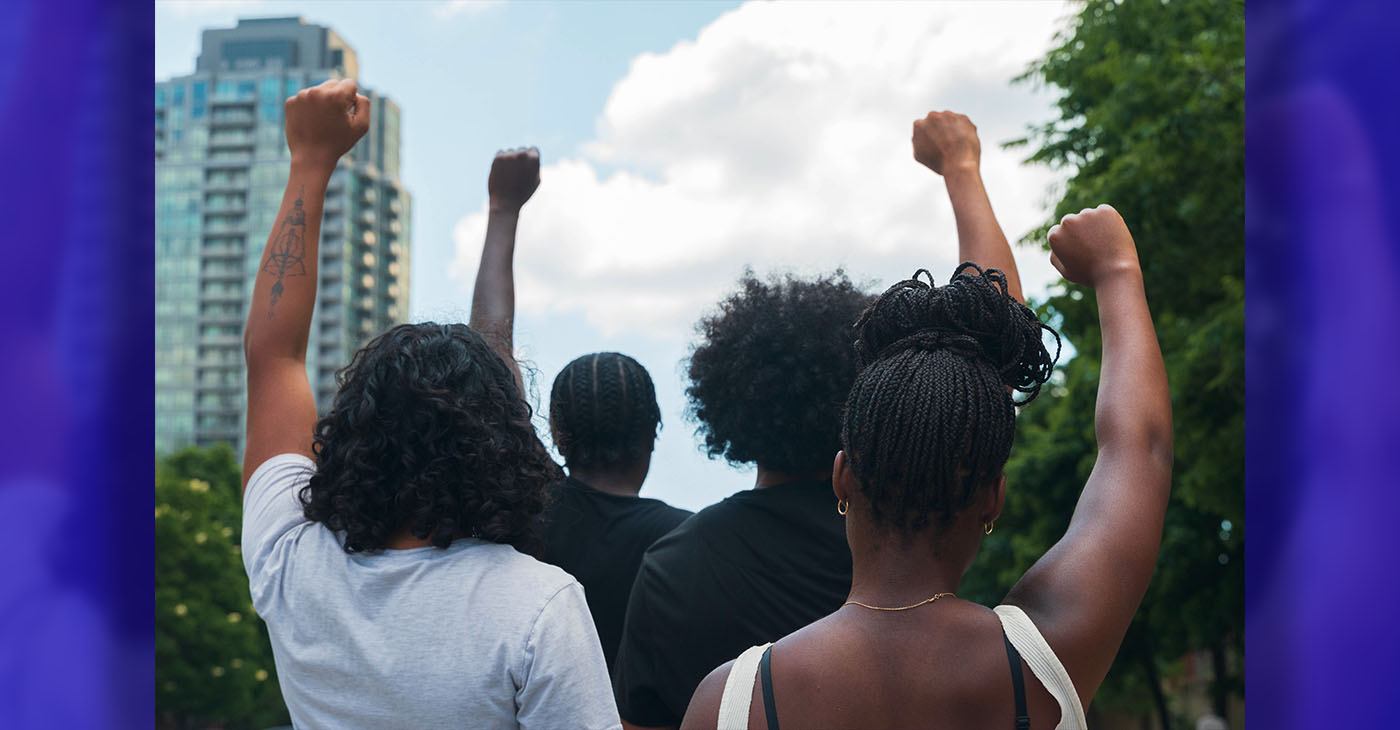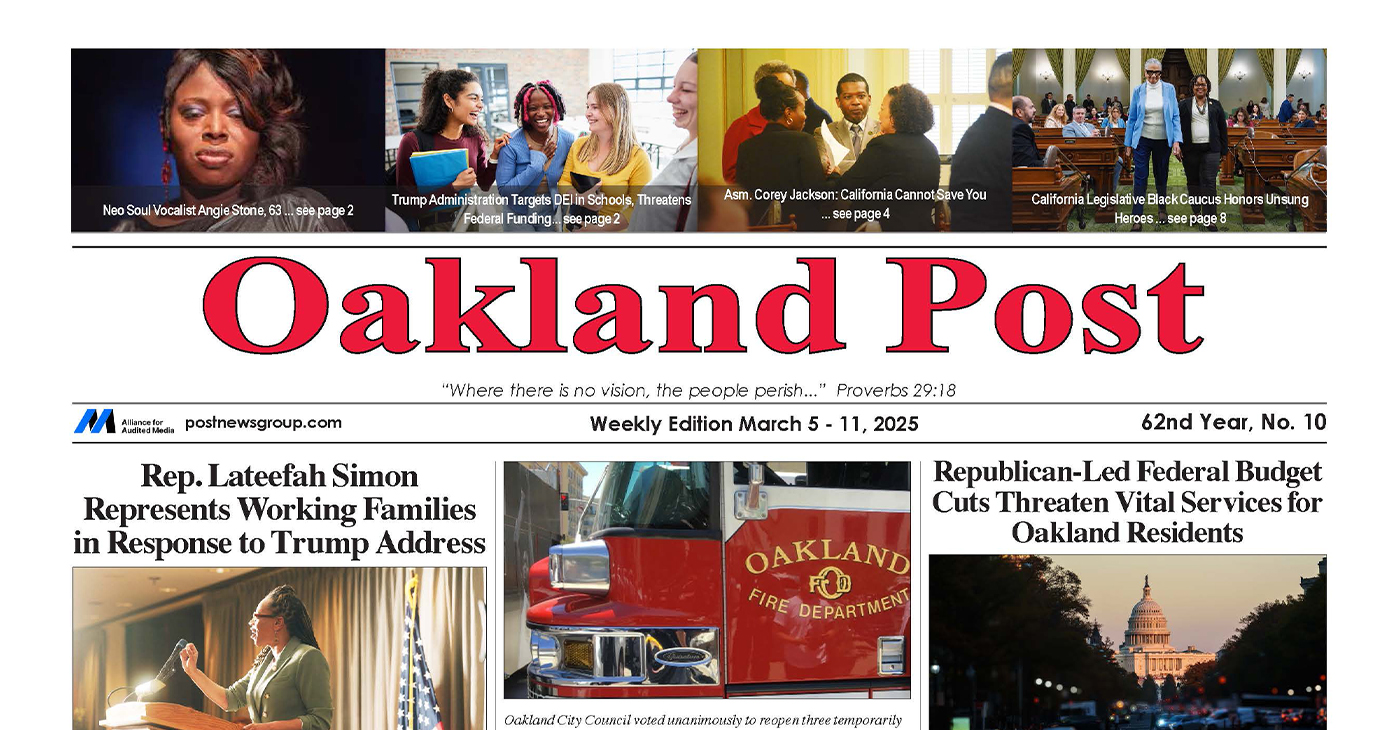National
Roof Appears on 9 Murder Counts; Charleston Seeks Unity
JEFFREY COLLINS, Associated Press
CHARLESTON, S.C. (AP) — They forgave him. They advised him to repent for his sins, and asked for God’s mercy on his soul. One even told Dylann Storm Roof to repent and confess, and “you’ll be OK.”
Relatives of the nine black community leaders shot down during a Bible study session confronted the shooting suspect Friday during his initial court hearing, and spoke of love.
“I forgive you, my family forgives you,” said Anthony Thompson. “We would like you to take this opportunity to repent. … Do that and you’ll be better off than you are right now.”
Roof, who faces nine counts of murder, was ordered held on $1 million bond. He appeared by video from the county jail, looking somber in a striped jumpsuit and speaking only briefly in response to the judge’s questions.
Felecia Sanders survived the Wednesday night attack by pretending to be dead, but lost her son Tywanza. She also spoke from the judge’s courtroom, where Roof’s image appeared on a television screen.
“We welcomed you Wednesday night in our Bible study with open arms. You have killed some of the most beautifulest people that I know. Every fiber in my body hurts … and I’ll never be the same,” Sanders told Roof.
“Tywanza was my hero,” Sanders said, but even she showed some kindness as she confronted the man accused of killing her son. “As we said in Bible Study, we enjoyed you but may God have mercy on you.”
Roof looked sad and bowed his head slightly, but showed no other emotion as the relatives spoke.
Their remarkable comments seemed in keeping with a spirit evident on the streets of Charleston Friday, where people built a memorial and planned a vigil to repudiate whatever a gunman would hope to accomplish by attacking the Emanuel African Methodist Episcopal Church, one of the nation’s most important African-American sanctuaries.
“A hateful person came to this community with some crazy idea he’d be able to divide, but all he did was unite us and make us love each other even more,” Mayor Joseph P. Riley Jr. said as he described plans for the evening vigil at a sports arena.
South Carolina Gov. Nikki Haley said the state will “absolutely” want the death penalty.
A steady stream of people brought flowers and notes and shared somber thoughts at a growing memorial in front of the church, which President Barack Obama called “a sacred place in the history of Charleston and in the history of America.”
“This was an act of racial terrorism and must be treated as such,” the Rev. Cornell William Brooks, president of the National Association for the Advancement of Colored People, said Friday in Charleston.
Roof, 21, had complained while getting drunk on vodka recently that “blacks were taking over the world” and that “someone needed to do something about it for the white race,” according to Joey Meek, who tipped the FBI when he saw his friend on surveillance images.
Brooks said hate crimes take aim at collective values, but “we have never allowed ourselves to be victims, we have never capitulated, we have never laid prostate before the demagogue of racism in this country.”
“This is a moment in which we say to them, the white nationalists movement, those purveyors of hate, we as Americans will not subscribe to that philosophy. We will not give up, we will not give in,” he said.
Roof was arrested in North Carolina after an alert motorist recognized him, and returned in shackles to a county jail where he was being held next to the cell of Michael Slager, the white former police officer charged with fatally shooting black motorist Walter Scott in neighboring North Charleston.
In addition to the nine murder counts, Roof is charged with possessing a weapon during the commission of a violent crime — a common charge in South Carolina when a gun is involved, whether legally owned or not.
Meek said Roof told him he used birthday money from his parents to buy a .45 Glock pistol before the attack.
The victims included Clementa Pinckney, a state senator who doubled as the church’s lead pastor, and eight others who each played multiple roles in their communities and families: ministers and coaches, teachers and a librarian, counselors and choir singers and the church sexton who kept the historic building clean.
“The suspect entered the group and was accepted by them, as they believed that he wanted to join them in this Bible study,” Charleston County Coroner Rae Wilson said. Then, “he became very aggressive and violent.”
The Justice Department is investigating whether to file federal hate crime charges, although Attorney General Loretta Lynch said state prosecutions are sometimes more appropriate. Obama pointed to lax gun controls as a factor, and complained that Washington politics have shut down efforts to require universal background checks for gun purchases.
Most of the presidential candidates avoided mentioning guns at all.
On his Facebook page, Roof displayed the flags of defeated white-ruled regimes, posing with a Confederate flags plate on his car and wearing a jacket with stitched-on flag patches from apartheid-era South Africa and Rhodesia, which is now black-led Zimbabwe.
Roof was arrested in February after workers said he appeared dressed entirely in black and asking strange questions at the Columbiana shopping mall. He was charged with possessing suboxone, a drug typically used to treat heroin addiction. A trespassing charge was added after he showed up again in April, prompting a three-year ban from the mall.
Spilling blood inside the “Mother Emanuel” church, founded in 1816, evoked painful memories nationwide that black churches have so often suffered from racist violence.
White landowners burned the church in 1822 after one of its founders, Denmark Vesey, tried to organize a slave revolt. Parishioners worshipped underground until after the Civil War, then rebuilt and grew stronger, eventually winning campaigns for voting rights and political representation.
“We don’t see ourselves as just a place where we come to worship, but as a beacon and as a bearer of the culture,” Pinckney said in 2013.
“What the church is all about,” Pinckney said, is the “freedom to be fully what God intends us to be and have equality in the sight of God. And sometimes you got to make noise to do that. Sometimes you may have to die like Denmark Vesey to do that.”
Pinckney, 41, was a married father of two and a Democrat who spent 19 years in the South Carolina legislature. The other victims were Cynthia Hurd, 54; Tywanza Sanders, 26; Myra Thompson, 59; Ethel Lance, 70; Susie Jackson, 87; and the reverends DePayne Middleton Doctor, 49; Sharonda Singleton, 45; and Daniel Simmons Sr., 74.
The mayor said a Mother Emanuel Hope Fund has been set up at Wells Fargo bank to help pay for funerals and other family expenses, and help the church continue its work.
___
Contributors include Russ Bynum, Alex Sanz, Meg Kinnard, David Goldman and Jacob Jordan in Charleston, South Carolina; Mitch Weiss in Columbia, South Carolina; Jay Reeves in Birmingham, Alabama; Eric Tucker in Washington.
Copyright 2015 The Associated Press. All rights reserved. This material may not be published, broadcast, rewritten or redistributed.
Activism
Oakland Post: Week of March 12 – 18, 2025
The printed Weekly Edition of the Oakland Post: Week of March 12 – 18, 2025

To enlarge your view of this issue, use the slider, magnifying glass icon or full page icon in the lower right corner of the browser window.
#NNPA BlackPress
Fighting to Keep Blackness
BlackPressUSA NEWSWIRE — Trump supporters have introduced another bill to take down the bright yellow letters of Black Lives Matter Plaza in Washington, D.C., in exchange for the name Liberty Plaza. D.C.

By April Ryan
As this nation observes the 60th anniversary of Bloody Sunday in Selma, Alabama, the words of President Trump reverberate. “This country will be WOKE no longer”, an emboldened Trump offered during his speech to a joint session of Congress Tuesday night. Since then, Alabama Congresswoman Terri Sewell posted on the social media platform formerly known as Twitter this morning that “Elon Musk and his DOGE bros have ordered GSA to sell off the site of the historic Freedom Riders Museum in Montgomery.” Her post of little words went on to say, “This is outrageous and we will not let it stand! I am demanding an immediate reversal. Our civil rights history is not for sale!” DOGE trying to sell Freedom Rider Museum
Also, in the news today, the Associated Press is reporting they have a file of names and descriptions of more than 26,000 military images flagged for removal because of connections to women, minorities, culture, or DEI. In more attempts to downplay Blackness, a word that is interchanged with woke, Trump supporters have introduced another bill to take down the bright yellow letters of Black Lives Matter Plaza in Washington, D.C., in exchange for the name Liberty Plaza. D.C. Mayor Morial Bowser is allowing the name change to keep millions of federal dollars flowing there. Black Lives Matter Plaza was named in 2020 after a tense exchange between President Trump and George Floyd protesters in front of the White House. There are more reports about cuts to equity initiatives that impact HBCU students. Programs that recruited top HBCU students into the military and the pipeline for Department of Defense contracts have been canceled.
Meanwhile, Democrats are pushing back against this second-term Trump administration’s anti-DEI and Anti-woke message. In the wake of the 60th anniversary of Bloody Sunday in Selma, several Congressional Black Caucus leaders are reintroducing the Voting Rights Act. South Carolina Democratic Congressman James Clyburn and Alabama Congresswoman Terry Sewell are sponsoring H.R. 14, the John Lewis Voting Rights Advancement Act. Six decades ago, Lewis was hit with a billy club by police as he marched for the right to vote for African Americans. The right for Black people to vote became law with the 1965 Voting Rights Act that has since been gutted, leaving the nation to vote without the full protections of the Voting Rights Act. Reflecting on the late Congressman Lewis, March 1, 2020, a few months before his death, Lewis said, “We need more than ever in these times many more someones to make good trouble- to make their own dent in the wall of injustice.”
Activism
Oakland Post: Week of March 5 – 11, 2025
The printed Weekly Edition of the Oakland Post: Week of March 5 – 11, 2025

To enlarge your view of this issue, use the slider, magnifying glass icon or full page icon in the lower right corner of the browser window.
-

 #NNPA BlackPress2 weeks ago
#NNPA BlackPress2 weeks agoTarget Takes a Hit: $12.4 Billion Wiped Out as Boycotts Grow
-

 Activism4 weeks ago
Activism4 weeks agoU.S. House Minority Leader Hakeem Jeffries and Rep. Lateefah Simon to Speak at Elihu Harris Lecture Series
-

 Activism4 weeks ago
Activism4 weeks agoActor, Philanthropist Blair Underwood Visits Bay Area, Kicks Off Literacy Program in ‘New Oakland’ Initiative
-

 Alameda County4 weeks ago
Alameda County4 weeks agoAfter Years of Working Remotely, Oakland Requires All City Employees to Return to Office by April 7
-

 Activism4 weeks ago
Activism4 weeks agoLawsuit Accuses UC Schools of Giving Preference to Black and Hispanic Students
-

 Alameda County4 weeks ago
Alameda County4 weeks agoLee Releases Strong Statement on Integrity and Ethics in Government
-

 Activism4 weeks ago
Activism4 weeks agoRetired Bay Area Journalist Finds Success in Paris with Black History Tours
-

 Activism2 weeks ago
Activism2 weeks agoUndocumented Workers Are Struggling to Feed Themselves. Slashed Budgets and New Immigration Policies Bring Fresh Challenges






















































